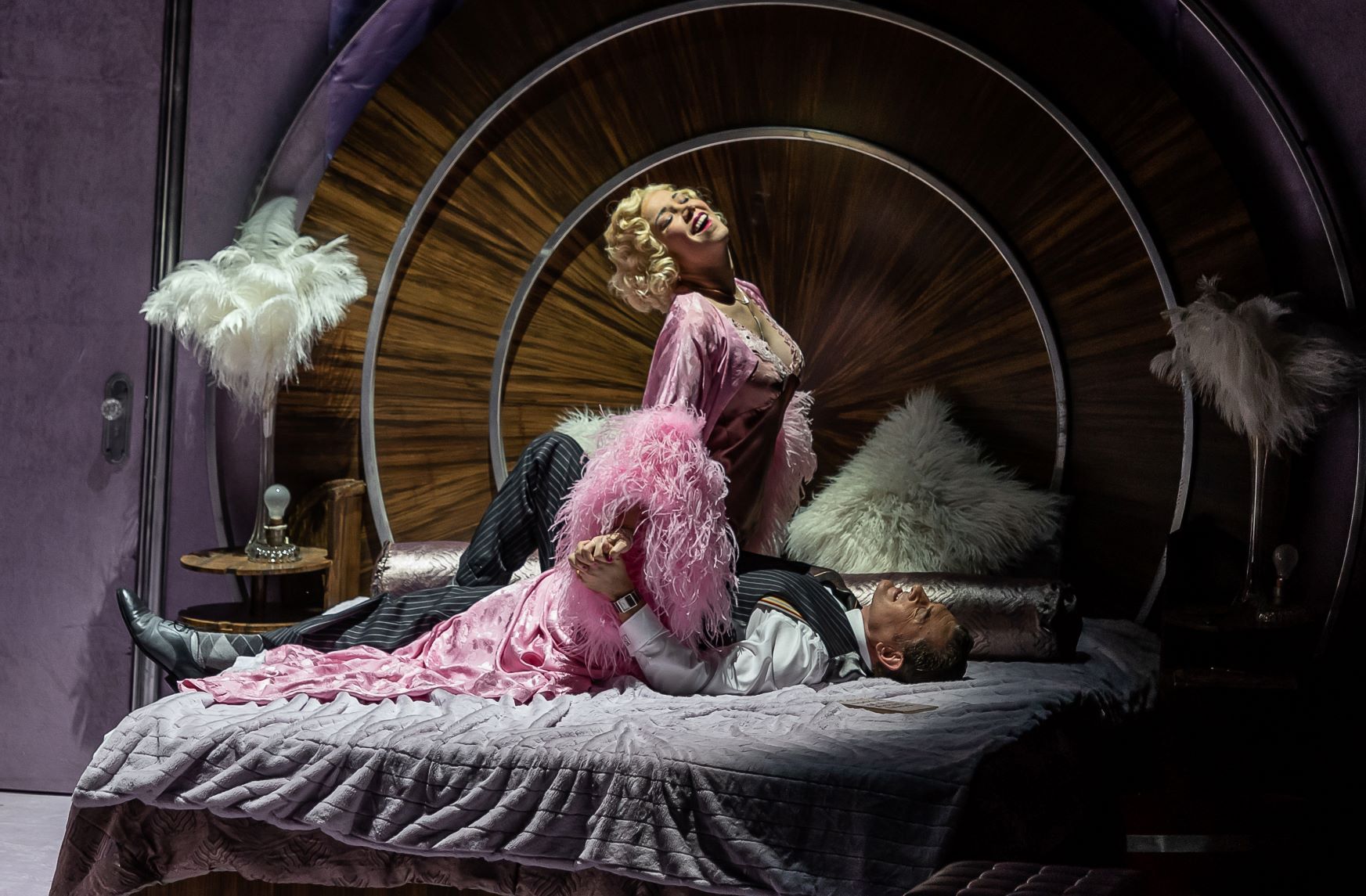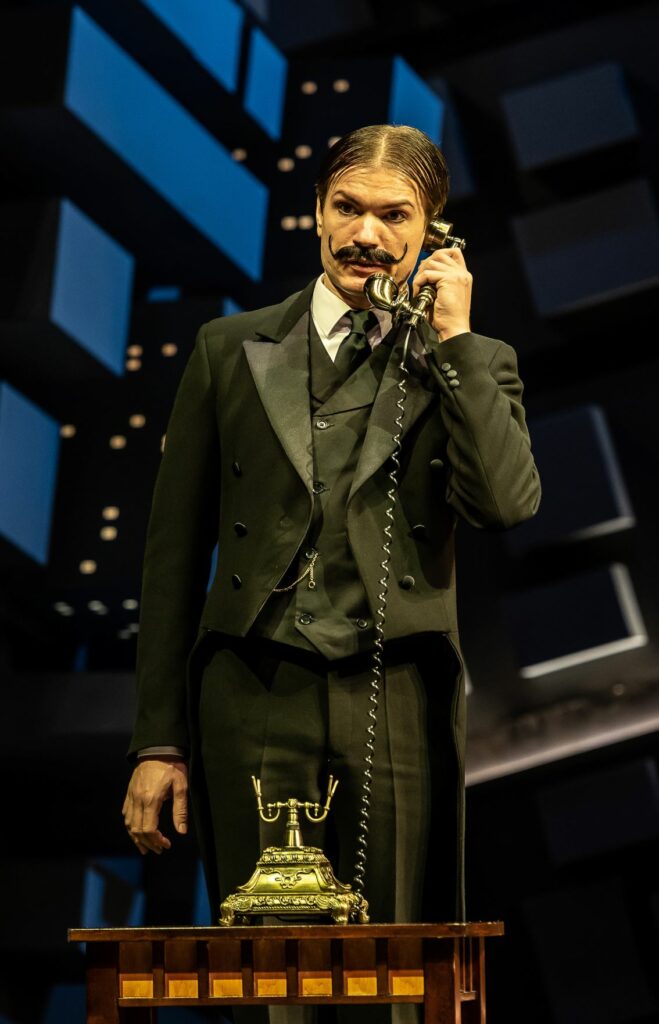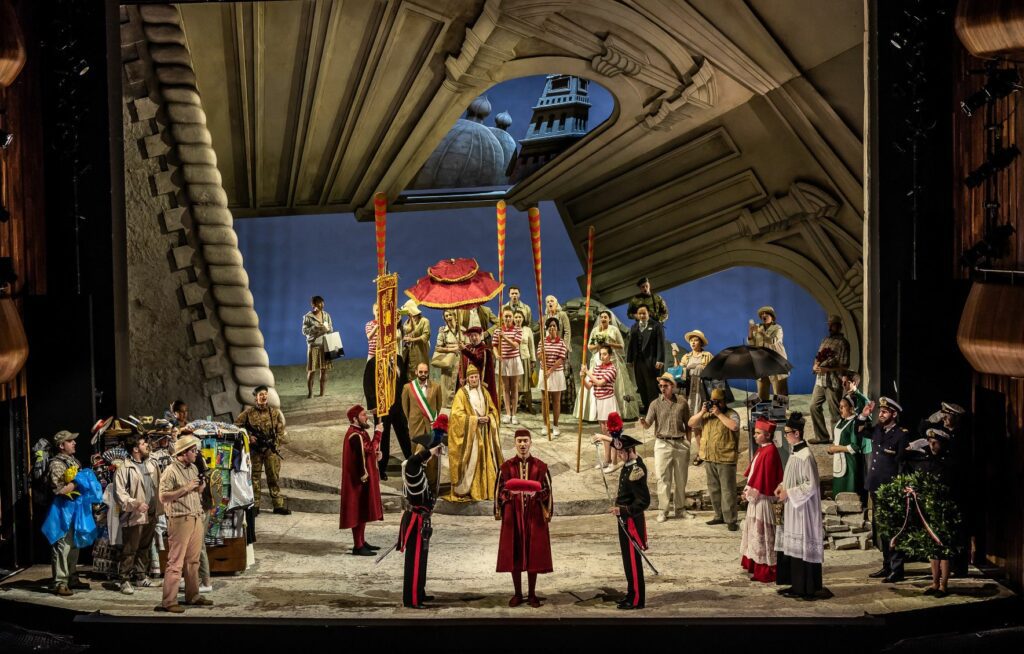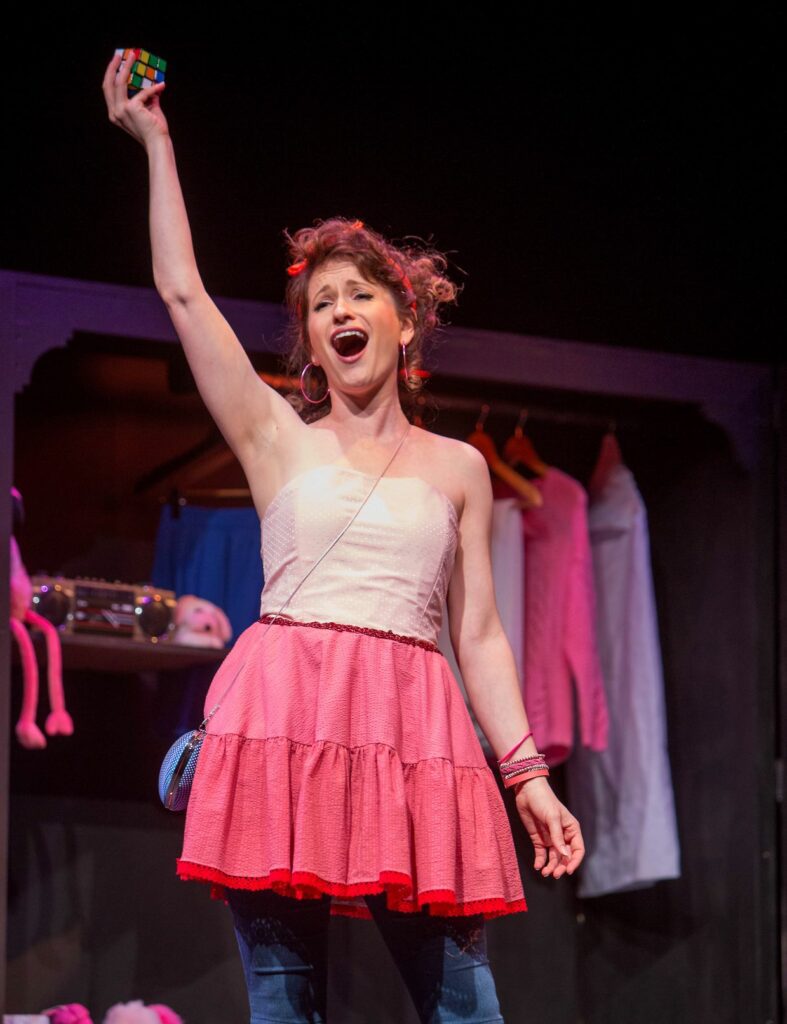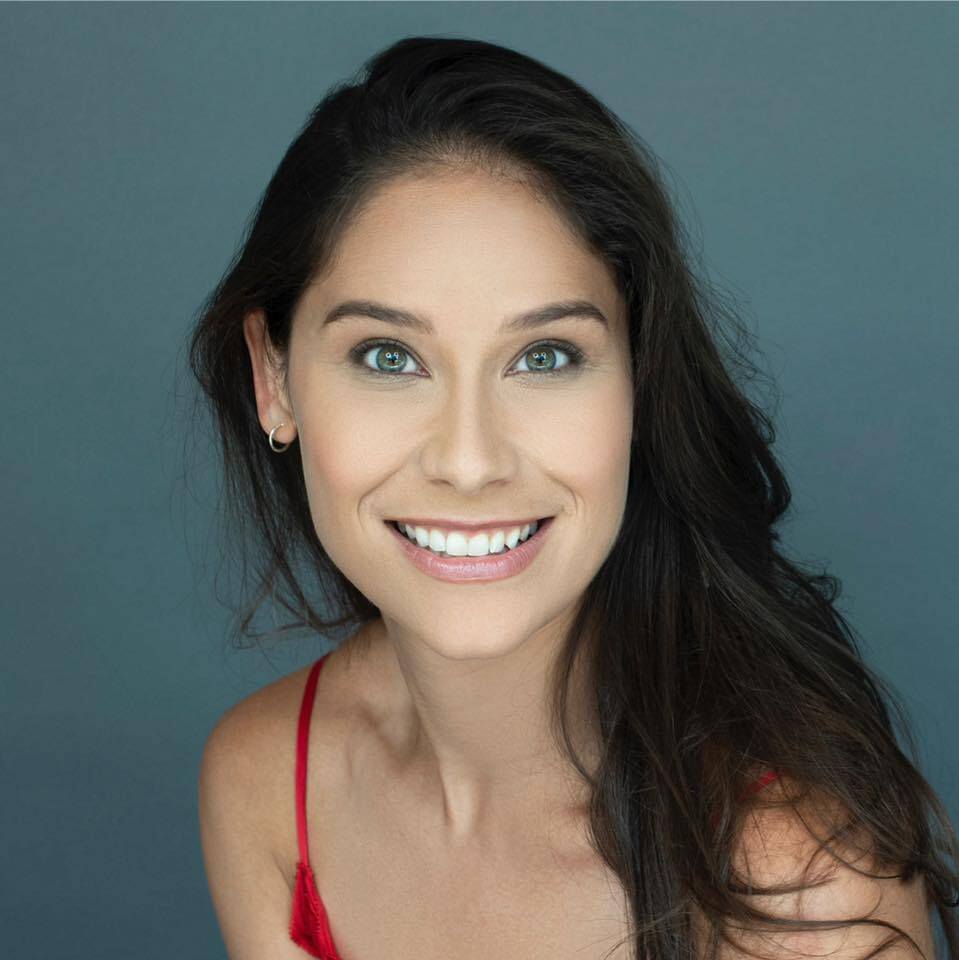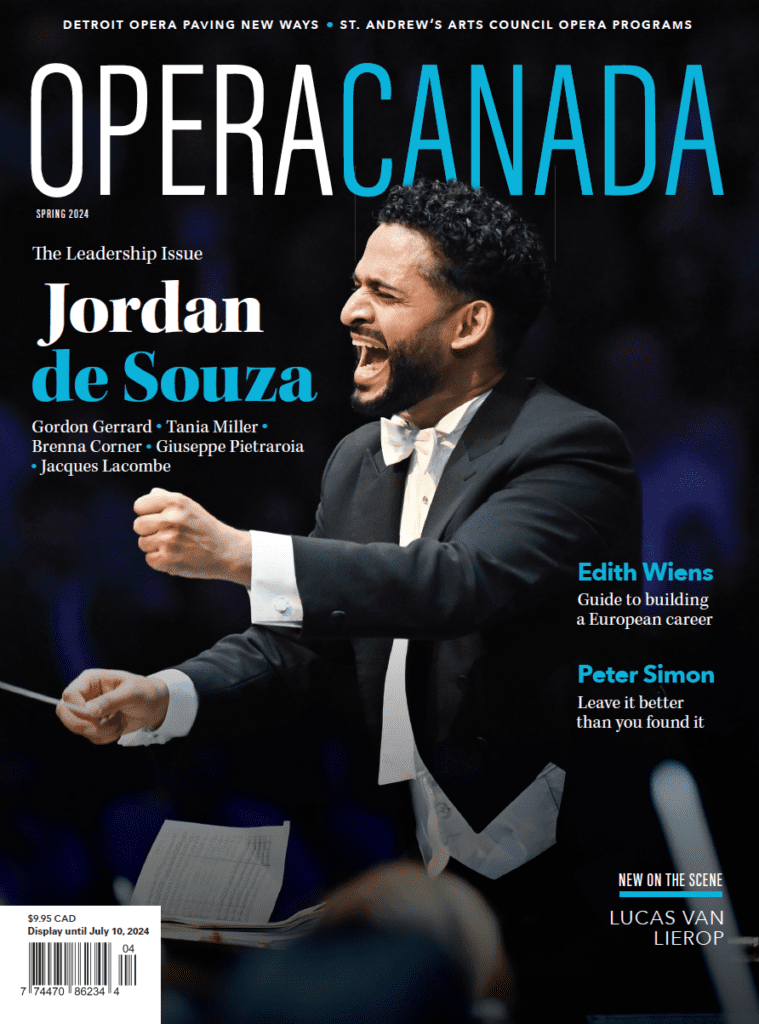I’m an unabashed admirer of verismo opera, but I freely admit having qualms when Wexford announced a pairing of Franco Leoni’s L’oracolo (1905) and Umberto Giordano’s Mala vita (1892) to open its 2018 festival. I knew Leoni’s gory Chinatown pasta pot from its vintage, oddly cast Decca recording and from a game but inert New York concert performance; and after one hearing of the youthful Giordano’s first full-length opera, I’d deemed it a shameless, second-tier clone of Cavalleria rusticana. Well, opening night (Oct. 19th) left me thrilled to be proved wrong: all it took was a top-flight staging to bring this duo to whopping veristic life. Director Rodula Gaitanou infused Cordelia Chisholm’s updated Chinatown/Little Italy (the same rotating, four-sided set did versatile double duty) with a vibrant atmosphere to match the music’s, which, illuminated by the stage action, yielded many an unexpected pleasure.
Leoni’s opera emerged as the stronger, with keen performances all around but especially from its three Korean baritones, Leon Kim and Benjamin Cho as two aggrieved fathers and Joo Won Kang as the dastard who meets a grisly end. The less sophisticated Mala vita couldn’t quite shake its Cav-with-a-twist aura, but Sergio Escobar, Francesca Tiburzi, and Dorothea Spilger did ample justice to the familiar-seeming roles of cad, jilted lover, and married siren. Francesco Cilluffo conducted both works expertly, with the Festival’s orchestra and chorus rising to their finest form.
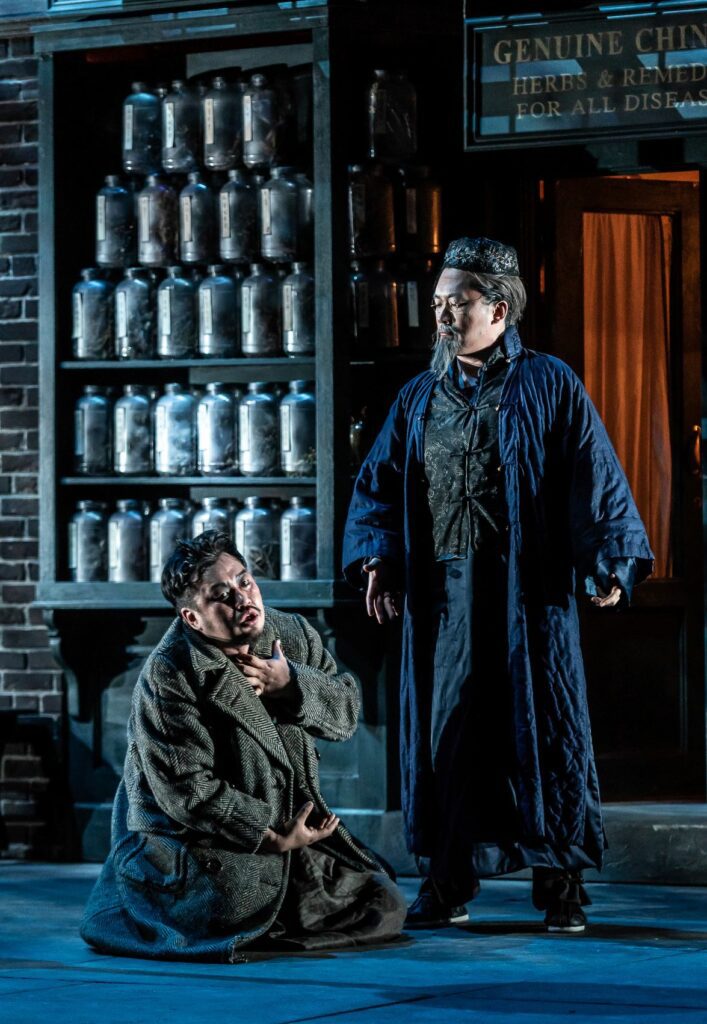
Joo Won Kang (Cim-Fen) and Leon Kim (Uin-Sci) in Wexford Festival Opera’s L’oracolo. Photo: Clive Barda.
The next night was, perhaps predictably, a letdown. Set to a deft text by America’s librettist du jour, Mark Campbell, and elegantly directed (Tomer Zvulun) and designed (Alexander Dodge and Victoria Tzykun), octogenarian William Bolcom’s Dinner at Eight offered pleasant enough light entertainment, but it was competing not just with the rousing Wexford opener but with the classic 1933 Hollywood movie culled from the same Broadway source, indelibly etched onto the memory of anyone who’s seen it. There was a stellar performance by soprano Mary Dunleavy, as the dizzy society hostess who plans the much-compromised titular meal, and firm support from everyone else, including another two estimable baritones, America’s Stephen Powell and Canada’s Brett Polegato, as a dying businessman and his maritally straying physician. A second fine Canadian baritone, young, Dresden-based Sheldon Baxter, mugged delightfully as the butler, Gustave. But the opera—not quite two years old—felt out of place at Wexford, despite the presence of the Festival’s artistic director, David Agler, in the pit, doing his darnedest with a mix-and-match of Gershwin, Weill, Rodgers, Blitzstein, Bernstein, and, yes, Bolcom. Was there any compelling reason for this Dinner to be served? For a Festival traditionally devoted to reviving rarities from a more distant past than 2017, maybe in a Wexford of, say, 2088, the answer would be clearer.
The third night brought a happy upswing. Wexford has a laudable history of unearthing the worthy works of Saverio Mercadante; and none is worthier than Il bravo (1839), the dramatically perplexing but musically intoxicating grandchild (via a French play) of a novel by, of all people, James Fenimore Cooper. Its tall tale of a notorious Venetian assassin and his convoluted reunion with the wife he thinks he murdered and the daughter he never knew may defy credulity, but Mercadante’s score is full of wonderful, sophisticated surprises of structure, style, and scoring. It lacks only the grand gift of easy hummability that so blessed Verdi, whose first opera, Oberto, burst onto the same stage (La Scala’s) eight months later.
The practiced, often puckish Canadian team of Renaud Doucet (director) and André Barbe (designer) were on their best behavior here, telling the story with as much clarity as could be culled from it, though I’d worried a little when, entering the auditorium, I was greeted by a drop curtain showing the Piazza San Marco of yore being riven by a modern cruise ship named Calamità, and when, a few minutes later, a parade of selfie-snapping tourists wandered onto the scene. The tourists came and went throughout, but with the courtesy not to interfere with the period-costumed drama. (Barbe’s designs were, as ever, classily handsome, if frequently underlit.)
The opera, unusually, features two leading sopranos and two leading tenors. Act III is a special aural treat, with the women matching voices in a gorgeous duet, followed by a terrific two-soprano, two-tenor quartet. These were stirringly served by Ekaterina Bakanova and Yasko Sato (virtuous daughter and notorious mother) and Rubens Pelizzari and Alessandro Luciano (real Bravo and daughter’s suitor in Bravo disguise), though earlier on, both Sato and Luciano took time warming up. Once again the chorus and orchestra excelled; and young Jonathan Brandani conducted with an invigorating sweep and flair. Six days later, Il bravo made history as the festival’s first live-stream telecast; catch it if you can as a web-exclusive on the RTÉ Player or in Apr. 2019, when it will be available to view on ARTE’s digital on-demand culture channel, ARTE Concert as part of ARTE’s 2019 Opera.
There was, as ever, plenty to occupy Festival-goers during daylight hours. Donizetti’s Don Pasquale, condensed as the opening “Short Work” in the reliably uncomfortable conference hall of Clayton Whites Hotel, offered a nifty Rubik’s Cube set offset by some poor directorial choices, among them a remarkably unconvincing old-age makeup for tall, handsome Toni Nežić, who sang the title role impressively, and a silly wig and mustache for the utterly splendid Malatesta of Simon Mechliński, a mellifluous voice and a suave stylist. Also highly stylish was leggy Canadian soprano Barbara Cole Walton, whose bright, girlish tone—what the Italians call a voce infantile—took some getting used to but whose technical skill and stage savvy were never in doubt.
The next day brought a bubbly centenary tribute to Leonard Bernstein, with a potpourri of theatre songs punctuated by two charming, feather-light song cycles from the 1940s, La Bonne Cuisine and I Hate Music! Engagingly concocted by veteran Wexford stage director Roberto Recchia, sung by a talented cast of seven, and rollickingly led at the piano by Vancouver’s dynamic Tina Chang, “Bernstein à la carte” seemed the happiest way imaginable to usher in a Sunday afternoon.

